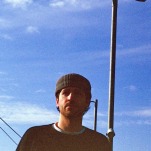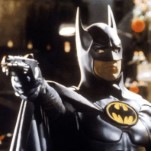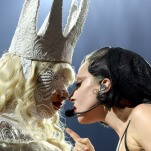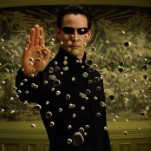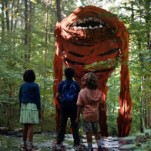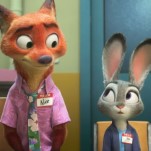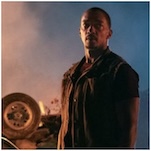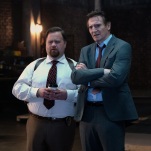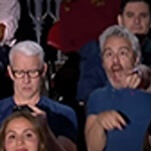Arrival
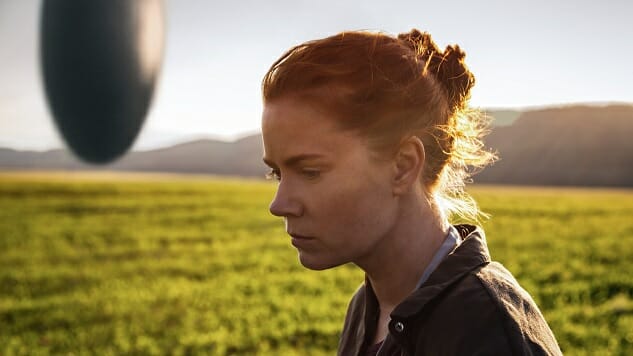
Denis Villeneuve is a magician whose films are stage acts shaped around distraction. He compels his audience to focus on his right hand and remain blissfully ignorant of what he’s doing with his left. When at his best he doesn’t care where you lay your gaze, because he has his trick down so pat that you won’t recognize the seams even if you look for them. That’s the gulf between his 2014 psycho-horror puzzle box, Enemy, and his 2015 drug cartel thriller, Sicario, a film that’s one part solid genre exercise, one part easy, self-satisfied political commentary. The first is such a convincing illusion that we lose ourselves in it, while the second is a routine we’ve all seen performed before, and performed better.
This is to say that your appreciation of Villeneuve’s new film, Arrival, will hinge on how well you like being led astray. It’s both the full embodiment of Villeneuve’s approach to cinema and a marvelous, absorptive piece of science fiction, a two hour sleight-of-hand stunt that’s best experienced with as little foreknowledge of its plot as possible. Fundamentally, it’s about the day aliens make landfall on Earth, and all the days that come after. To sum up the collective human response in a word, it’s mayhem, because nobody paying attention to world news in 2016 could get away with making a movie about first contact where the world doesn’t go berserk. The aliens land a dozen different colossal obsidian vessels in a dozen different spots across the globe, from Russia, to China, to the literal middle of nowhere in Montana, Villeneuve’s primary setting.
If there’s a subtext to Arrival beyond those communicated in Eric Heisserer’s script and Villeneuve’s direction, it’s “Thank Christ for Amy Adams.” The film begins, continues and ends with Adams leading the narrative as Louise Banks, a brilliant linguist commissioned by the U.S. Army to figure out how the hell to communicate with our alien visitors. As is standard in these kinds of movies, she is one member of a team enlisted for the task, including mathematician Ian Donnelly (Jeremy Renner), Colonel Weber (Forest Whitaker), and CIA agent Halpern (Michael Stuhlbarg, one of the most ubiquitous supporting actors of the fall/winter movie season). As is becoming the standard in Villeneuve’s kind of movie, she’s the smartest one in the room, unless it’s the waiting area where she and her colleagues try to speak to the heptapods.
That’s the name humanity gives to the aliens on account of their appearance: We don’t get a full glimpse of them until the film’s final act, but we see enough of them to know they are huge, tentacled creatures—seven-tentacled creatures, to be exact—like the eldritch horrors designed by H.P. Lovecraft, but sans the horror. More frightening than the heptapods is their ship, hovering high above the ground in vertical, a monolith of the unknown where gravity plays by a different set of rules than our own. Getting inside the ship plays with our minds and those of the team. The fear factor is significant, but the longer that Arrival plays, the more it shifts away from the heptapods and onto the demographics of humanity that do not include Louise, or Ian, or the Colonel.
-

-

-

-

-

-

-

-

-

-

-

-

-

-

-

-

-

-

-

-

-

-

-

-

-

-

-

-

-

-

-

-

-

-

-

-

-

-

-

-





